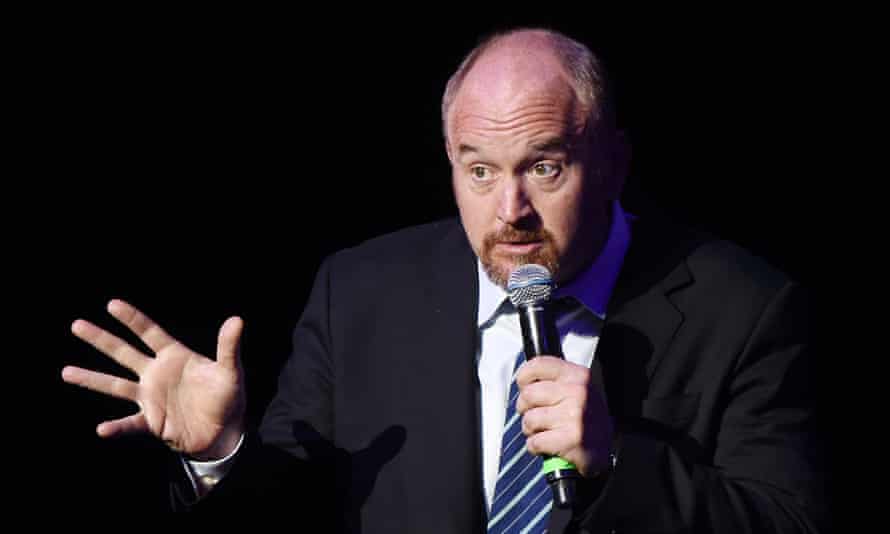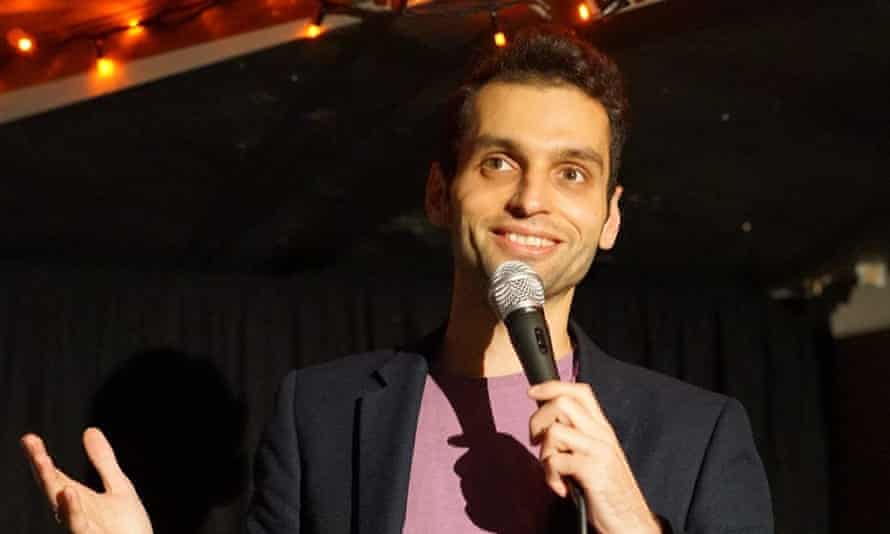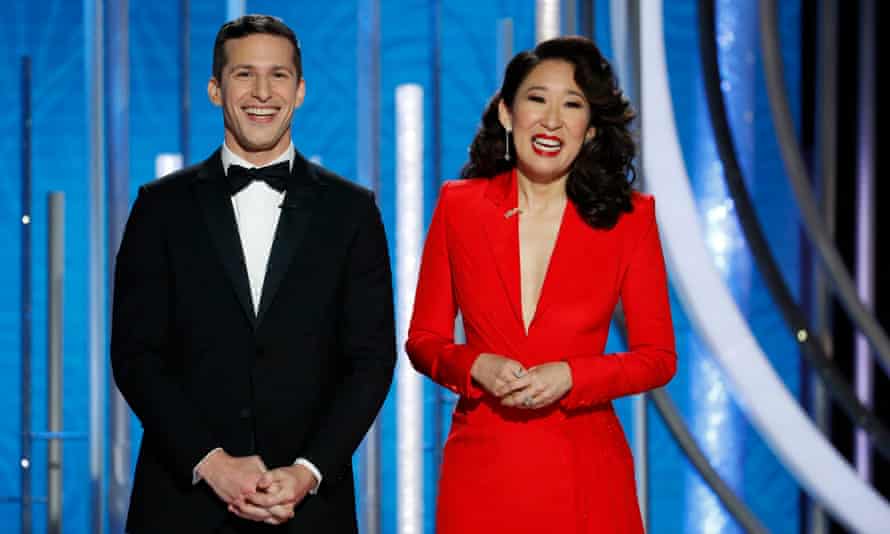2019 Will Be Better Funny Comic
C omedy is in a period of extraordinary flux. The past two years have witnessed the reputations of revered comics, such as Louis CK and Aziz Ansari, implode in the wake of #MeToo allegations. Then there is the culture of unearthing old tweets, with standups being held to account for problematic "jokes" they've made online (for Kevin Hart, it even cost him his most high-profile gig to date, hosting the Oscars). There are also increasing fears around political comedy and censorship. This month, Hasan Minhaj's Netflix special was pulled because he criticised the Saudi regime over the killing of Jamal Khashoggi, while Michelle Wolf's searing political set at the White House Correspondents Association dinner in 2018 led to the board announcing that 2019 will be the first time in 15 years that a comic would not be presenting the event. Elsewhere, Jim Davidson, a man once so vile he was almost immune to judgment, was reported for hate speech, at his own birthday party no less (although no action was taken). The comedy goalposts are shifting and there is a demand that the art form gets more socially conscious. But can you be woke and funny? And are we living in a time of such change and heightened awareness that the two can now never be mutually exclusive?
"When comedians say: 'Oh you can't say ANYTHING these days!', what they are actually saying is, 'I don't know how to be funny without stomping on people.' Which is fair enough: not everyone has those skills," says Danish standup and podcaster Sofie Hagen. "But a lot of comedians do and they're doing well based on that. Hannah Gadsby, Nish Kumar, Sara Pascoe, Mark Watson, Sophie Duker, Mae Martin: there are loads who manage to say a lot of things without repercussions; who are really, really funny while doing it. It sometimes takes a bit of extra work; you have to be aware of your own privilege and you have to educate yourself so you don't use damaging language."

Comic James Meehan agrees. "The thing about standup is you can joke about absolutely anything. Nothing is off limits. It's just how well you can write and frame the joke. I know lazy comics who only complain about political correctness because they don't want to update their material. The other people who complain are those who want a platform to spout hateful rhetoric."
But it is not just about laziness; sometimes there is a deliberate attempt to rile. Before the allegations, Louis CK's comedy was subversive: poking fun at the inequalities of American society, while simultaneously acknowledging the ways they benefited him. After allegations of sexual misconduct appeared last year, however, the comic seemed to react with horror at a new world that threatened his unexamined patriarchal mindset. According to reports, at a recent New York show CK made jokes about survivors of gun violence and minorities such as non-binary teens. When some listeners appeared shocked, he allegedly responded: "Fuck it, what are you going to take away, my birthday? My life is over, I don't give a shit."
It was as if CK had reacted to the new wave of wokeness by indicting political correctness; he became an almost Trump-like figure, amplifying for shock value and catering to an audience who probably felt as if accusations about him were false or insignificant.
However, there is a new generation of comics retaliating against the old template of comedy. Nights such as The LOL Word (for queer women and non-binary performers) and FOC It Up!, standing for "femmes of colour", have emerged, along with the new comic voices including Chloe Petts, Jodie Mitchell, Kemah Bob and Sara Barron. Hagen is also emblematic of this new kind of comedian. Last year, she demanded that every venue on her Dead Baby Frog tour was "anxiety safe" (meaning audience members with anxiety could be allowed into the venue before others arrived, or be warned of any words or topics that might be triggering for them), had gender-neutral bathrooms and were wheelchair accessible. She had a positive response from fans, but faced an inevitable backlash online.
"The people who come to my shows, the people who enjoy my standup and my podcasts, they're on the right side of history. They get it," she says. "And I know that a lot appreciated it. The negativity I got was mostly online: loads and loads of hateful tweets and comments from people who were never going to go see my show anyway."
Is this the future of funny? Perhaps it is the only way to survive. Comic Dane Baptiste thinks it could be detrimental to a comic's career to plough on with problematic humour: "It's not an obligation for comedians to be socially aware in their narrative but I feel that if you have no commentary on the mechanics that affect your life and lives of others, you might find yourself rather detached, and eventually irrelevant."
When it comes to how people balance freedom of speech versus social responsibility in their comedy, there is, perhaps, a generational divide. "The received wisdom would probably be that there is," says comedy writer and actor Liam Williams. "Though it would be complacent just to assume that any backlash to increased nuance, consideration, and empathy in comedy is just coming from nearly-dead Daily Mail readers. There's a new sense of panic about tolerance and not just among older people."

As if to clinch that point, just before Christmas, Russian-British comedian Konstantin Kisin pulled out of a gig for the Unicef on Campus society at London's School of Oriental and African Studies after refusing to sign a "behavioural agreement form". The form stated: "By signing this contract, you are agreeing to our no-tolerance policy with regards to racism, sexism, classism, ageism, ableism, homophobia, biphobia, transphobia, xenophobia, Islamophobia or anti-religion or anti-atheism." Kisin told the Daily Mail: "I grew up under the Soviet Union. When I saw this letter, basically telling me what I could and couldn't say, I thought this was precisely the kind of letter a comic would have been sent there."
"As far as I could see, the bulk of the outrage – coagulating around the idea that this represented a threat to free expression – came from older comedians and rightwing broadcasters, whereas younger people in the industry seemed to struggle to apprehend what the fuss was about," Williams says of the Kisin incident. "Most decent comedy clubs offer some kind of disclaimer on their websites that abuse or discrimination will not be tolerated, from either audience members or acts. That's not a new thing, but maybe the intensity of the hysteria surrounding it is," he adds.
Amid such intense hysteria, perhaps it's not surprising that there is a sense of caution around humour, especially jokes being made at major, highly scrutinised showbiz events. Take the recent Golden Globes awards. The comedy routines were curiously vapid, as though no one dared to risk saying anything challenging in the post-Harvey Weinstein Hollywood era, for fear of a Twitter backlash. Co-hosts Sandra Oh and Andy Samberg set the tone. "Now we know what you guys are thinking," said Samberg. "Andy Samberg and Sandra Oh, the two nicest people in Hollywood? This is gonna be a snooze!" Samberg said, threatening to "roast" them "Ricky Gervais-style". But, of course, the duo didn't. The gentle tone of the hosting was in marked contrast to the sparky Tina Fey/Amy Poehler hosting years of 2013 to 2015. In 2019, the concept of mocking your peers is definitely out.

Next up come the Oscars, already mired in Envelopegate, the #OscarsSoWhite campaign and the scrapping of a proposed popular film award category. Earlier this month, Kevin Hart plunged the Academy Awards into chaos when he decided he would rather film Jumanji than host the event, not least because of the backlash he had been experiencing for homophobic tweets from 2009 and 2010 that had been unearthed. Because of the furore that surrounded Hart's tweets and his subsequent reaction to the outrage, this year's award show will be hostless. Was Hart right to stand down? British comedian Stephen Bailey has an intriguing perspective. "I obviously, as a gay man, don't agree with what he said. But it was a something he put out 10 years ago, others have had the same derogatory views," he says. "He has apologised, he seemed sincere, we have to hope he learns from it and grows and we should give him that chance; we shouldn't want to destroy him. We are in such a time where instead of educating and allowing growth, we love to create a villain out of someone so that we can play the hero – and that's not on."
Rather, Bailey suggests, there should be more attention and urgency paid to acts of homophobia happening to people right now. "A couple were attacked in the last few days for holding hands by three thugs … shall we shine a light on that? That's helpful!"
Perhaps the death of traditional comedy has also been ushered in because, as Hannah Gadsby has put it, the format suspends its practitioners in "a permanent state of adolescence". Gadsby, the most thoughtful comedian of recent times, deconstructed comedy at Sydney Opera House in her standup show Nanette on Netflix last year.
What was Gadsby's problem with comedy? In order to succeed at standup, the comedian said she had to be self-deprecating: "I had to put myself down in order to speak." She described how, years ago, she would do a gag about an experience she had in which a man who threatened her for flirting with his girlfriend outside a pub eventually backed off when he realised that she was a woman. The punchline was about the man's ignorance.
In Nanette, however, Gadsby revealed she had distorted what happened for comic effect. The reality was far more disturbing. After walking away, the man said: "I get it. You're a lady faggot. I'm allowed to beat the shit out of you." No one stopped his subsequent attack on her, nor did she ever report the assault to police or get hospital treatment.
Her point was that comedy made her distort her experience of a homophobic hate crime. Effectively, she was internalising the hate. "That's not humility, it's humiliation," she said. Comedy was akin to an abusive partner – something she needed to escape.
While Gadsby expressed a concern that comedy could be harmful to minorities, the hope, in the era of #MeToo, Black Lives Matter and other struggles against oppression, is that comedy can help by being a vehicle for radical thought. Nanette arrived at a pivotal moment of reassessment in the industry. That it was on Netflix and watched by a mainstream audience at home held significance. Many of its viewers probably would have never seen the show live otherwise. Its success and Gadsby's visibility was a sign that systemic change is afoot.
"I know that a lot of fat people, for example, stay away from comedy clubs because they just assume that they're going to be made fun of," says Hagen. "Maybe the people who felt victimised or attacked or marginalised by comedy now see that there is a whole other scene, where they're not the butt of the joke. I don't know, but I hope so."
So what is the purpose of comedy in 2019?
Baptiste thinks its role is the same as it has always been. "[It's] to provide the balance to tragedy in the theatre that is art and life," he says. "To rationalise trauma; one of the most effective coping methods humans have in this crazy world. It's the best alternative to politics and its censored, sycophantic, dishonest nature. And," he says, "it's to help me pay bills and never ever ever get a real job. This is the most important one for me."
Source: https://www.theguardian.com/culture/2019/jan/19/is-standup-comedy-doomed-future-of-funny-kevin-hart-louis-ck-nanette
0 Response to "2019 Will Be Better Funny Comic"
Post a Comment